Choosing the right hose

The hose is the most important component of a cyclone filter system. The hose determines:
– the final suction power of the filter system;
– how smoothly the connected handheld tools can move;
– the size of the working range;
– how safely static electricity can be managed.
Different types of machines and tasks require different types of hoses. Handheld machines where maneuverability is important need a light and flexible hose. These are always hoses with a relatively small inner diameter (32mm and smaller). A hose with a larger inner diameter automatically becomes heavier and less flexible. Larger hoses, in turn, perform better on small and large stationary machines, such as a table saw and thickness planer. Stationary machines produce more dust and therefore have larger dust ports, allowing more dust to be extracted.
We offer four different types of hoses in our range:
Turn the screen horizontally for a wider view.
| Hose type | Suitable for: | Handheld machines* | Small stationary machines** | Large stationary machines*** |
|---|---|---|---|
| Conical hoses |  |  |  |
| 32mm hoses |  |  |  |
| 38mm and 40mm hoses |  |  |  |
| 50mm hoses |  |  |  |
* Handheld machines: sander, circular saw, jigsaw, router, wall grinder, biscuit joiner, etc.
** Small stationary machines: table saw, miter saw, table router, etc.
*** Large stationary machines: thickness planer, jointer, CNC machine, sandblasting cabinet, etc.
Conical hoses
Conical hoses have an inner diameter that tapers. Two-thirds of the hose have a 40mm inner diameter, and the final part of the hose has a 32mm inner diameter. This combination allows conical hoses to offer the best of both worlds: the light weight and flexibility of a 32mm hose, coupled with the greater airflow of a 40mm hose. The conical shape of the hose also ensures unparalleled suction power per cm². For 95% of all users, conical hoses are the best choice.
Turn the screen horizontally for a wider view.
| Conical hoses | Inner diameters | Length | Nozzle | Antistatic | Flexibility | Suction per cm² | Airflow |
|---|---|---|---|---|---|---|---|
Blue-Coniflex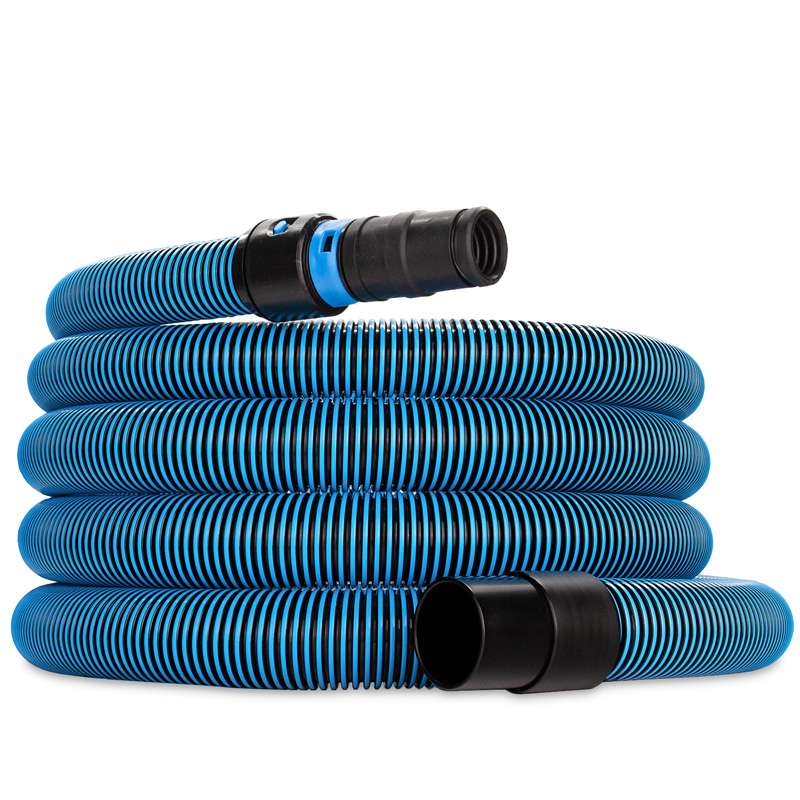 | 40mm/32mm | 5 meter | Pro-X | No |  |  |  |
Blue-Coniflex (AS)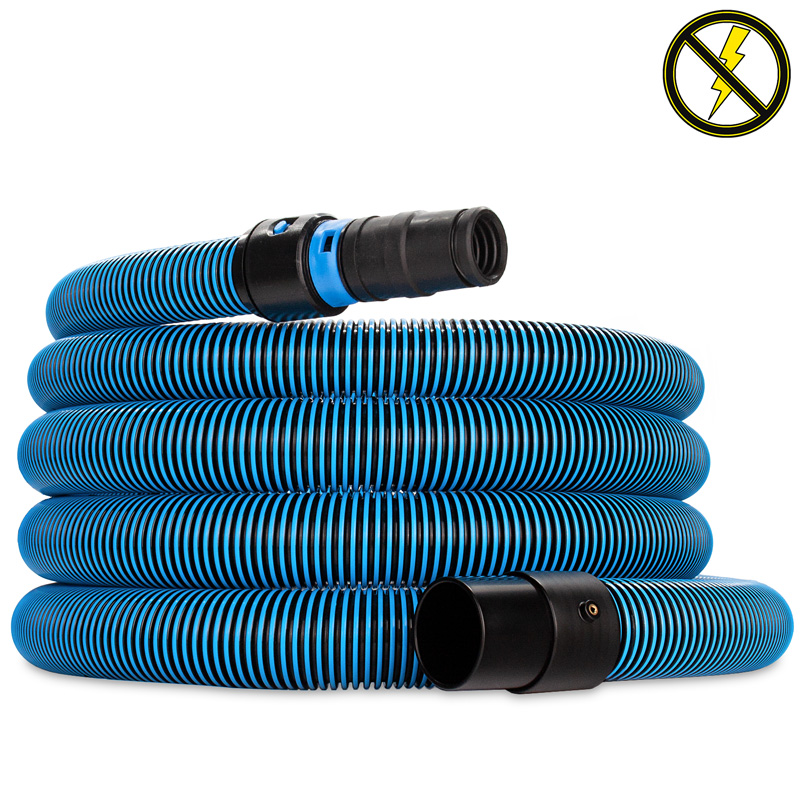 | 40mm/32mm | 5 meter | Pro-X (AS) | Yes |  |  |  |

* For a (construction) vacuum system that can partially compensate for the increased air resistance by making the motor run harder (increasing motor power), the gain in suction power with a conical hose will be less significant compared to the suction power of a normal 32mm hose. The advantage of a conical hose in such (construction) vacuum systems is that the motor load is lower, as the air resistance is significantly less compared to a normal 32mm hose. As a result, the lifespan of the (construction) vacuum system motor is extended.
32mm hoses
32mm hoses are primarily intended for handheld machines. Due to their low weight and flexibility, they can move smoothly along with the tool, making them suitable for tasks requiring maximum maneuverability. Since the entire length of the extraction hose has an inner diameter of 32mm, air resistance will gradually increase, ultimately affecting the suction power per cm² and airflow. Nevertheless, even with a 5-meter long 32mm extraction hose, there is usually sufficient capacity left for effective dust filtering.
Turn the screen horizontally for a wider view.
| 32mm hoses | Inner diameters | Length | Nozzle | Antistatic | Flexibility | Suction per cm² | Airflow |
|---|---|---|---|---|---|---|---|
Standard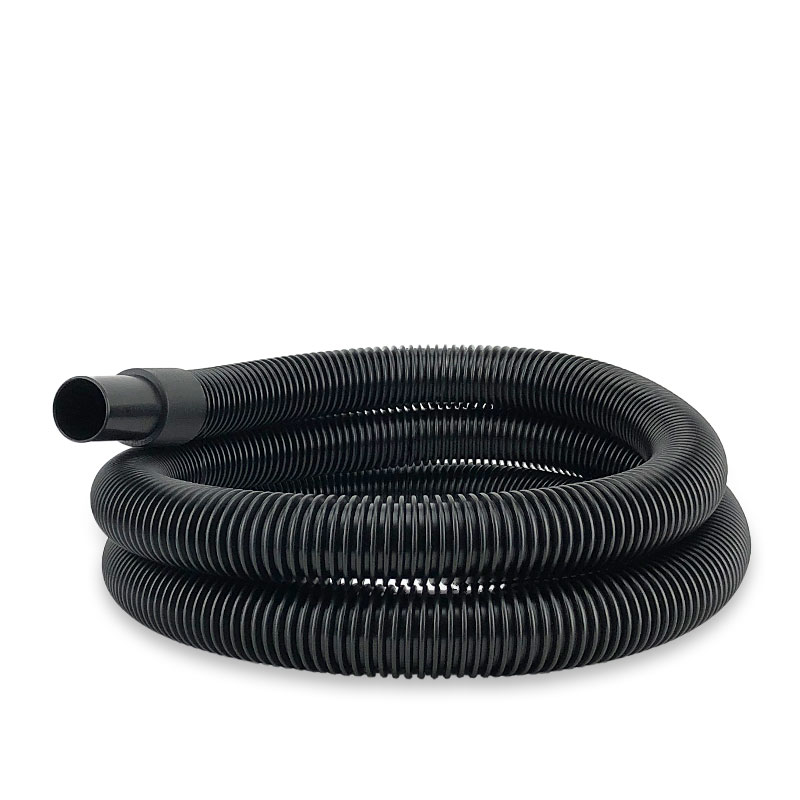 | 32mm/32mm | 2,5 meter | Standard | No |  |  |  |
Blue-Flex*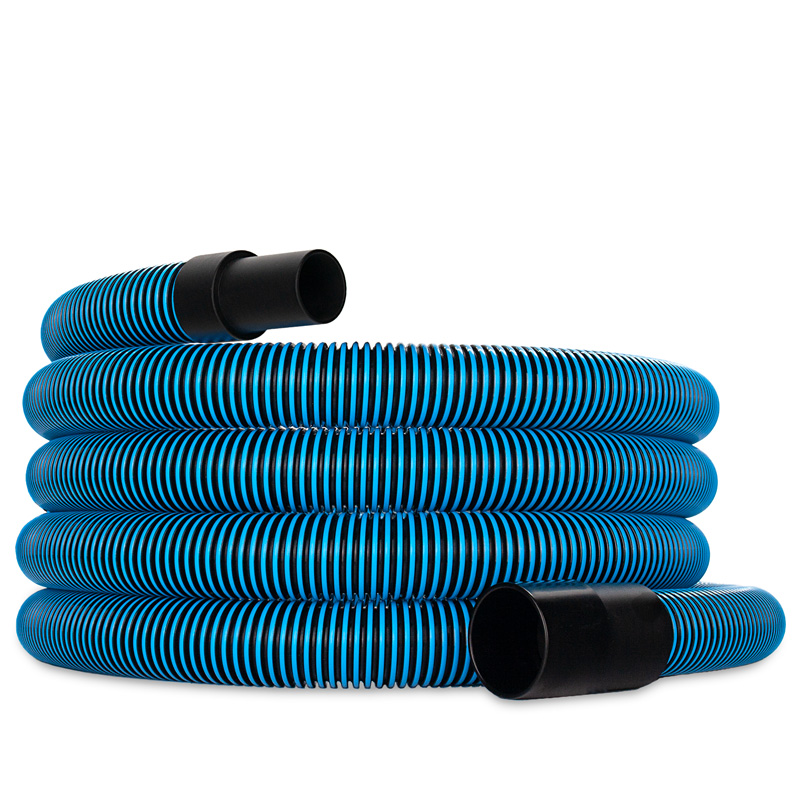 | 32mm/32mm | 5 meter | Standard | No |  |  |  |
Blue-Flex (AS)*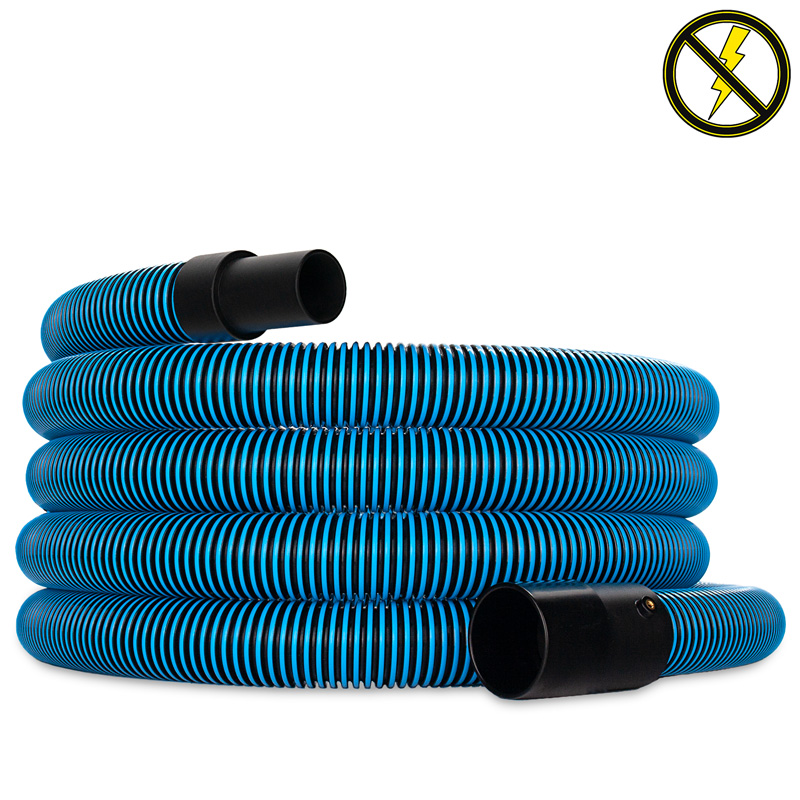 | 32mm/32mm | 5 meter | Standard (AS) | Yes |  |  |  |
* Due to their greater length, the 5-meter long Blue-Flex 32mm hoses exhibit slightly lower suction power and airflow compared to the shorter 2.5-meter standard 32mm hose.
38mm en 40mm hoses
38mm and 40mm hoses are primarily used for smaller stationary machines such as a table saw and miter saw. The standard 38mm hose maintains a consistent inner diameter of 38mm along its length, while the Blue-Industrial 40mm hose maintains a 40mm inner diameter throughout. As a result, these hoses can accommodate greater airflow compared to the smaller 32mm hoses. Due to their larger size, they are also slightly heavier and less flexible, making them less suitable for tasks requiring maximum maneuverability. When maximum maneuverability is not necessary, these larger hoses can also be connected to handheld tools. However, it’s important to note that the increased weight of the larger hose might cause it to pull on the handheld tool. This can easily be prevented by using a hose table holder.
Turn the screen horizontally for a wider view.
| 38mm hoses | Inner diameters | Length | Nozzle | Antistatic | Flexibility | Suction per cm² | Airflow |
|---|---|---|---|---|---|---|---|
Standard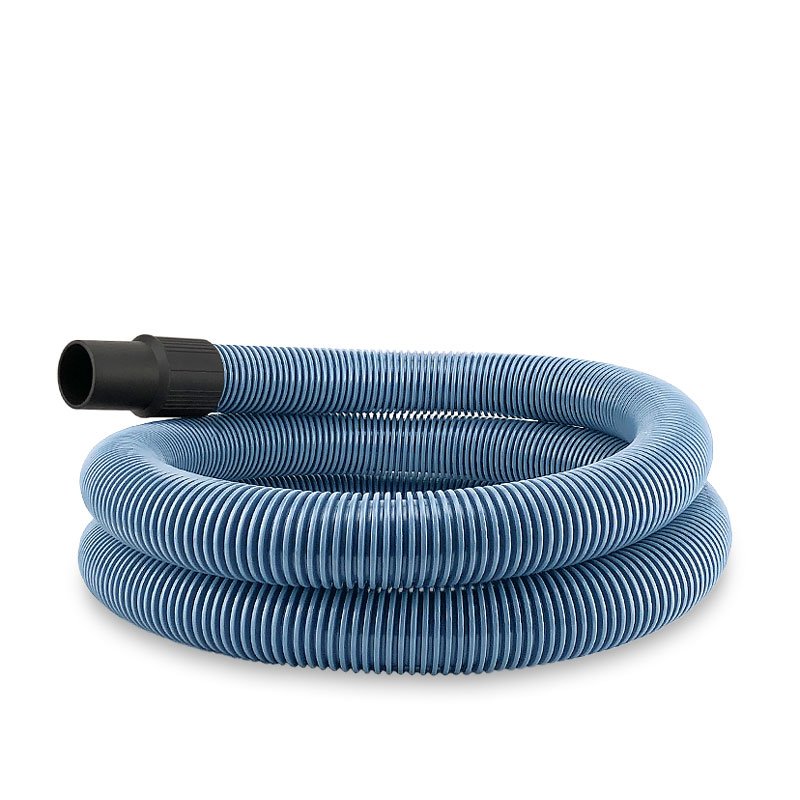 | 38mm/38mm | 2,5 meter | Standard | No |  |  |  |
Blue-Industrial*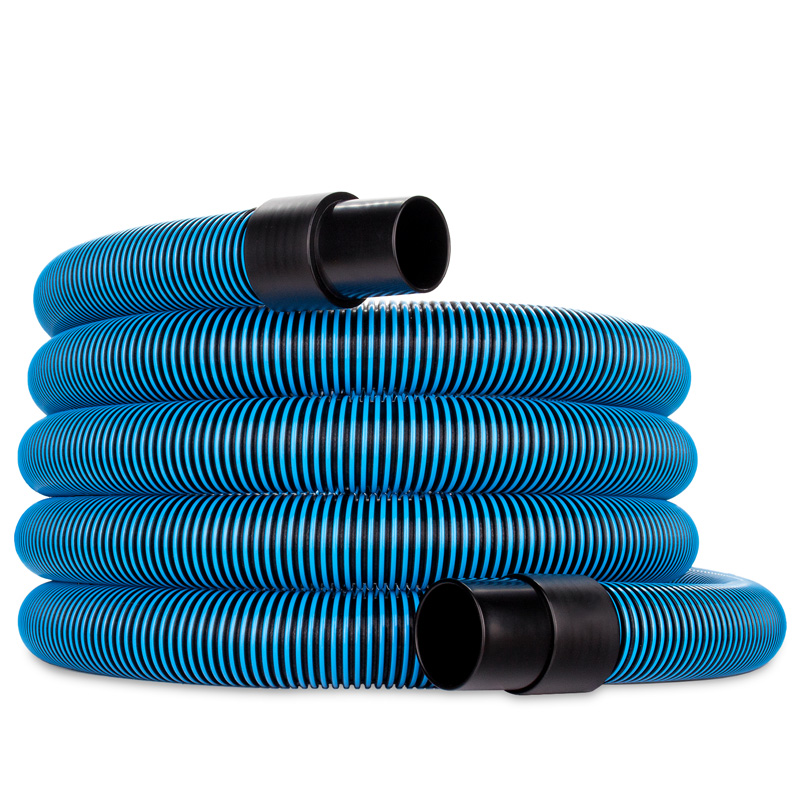 | 40mm/40mm | 5 meter | Standard | No |  |  |  |
Blue-Industrial (AS)*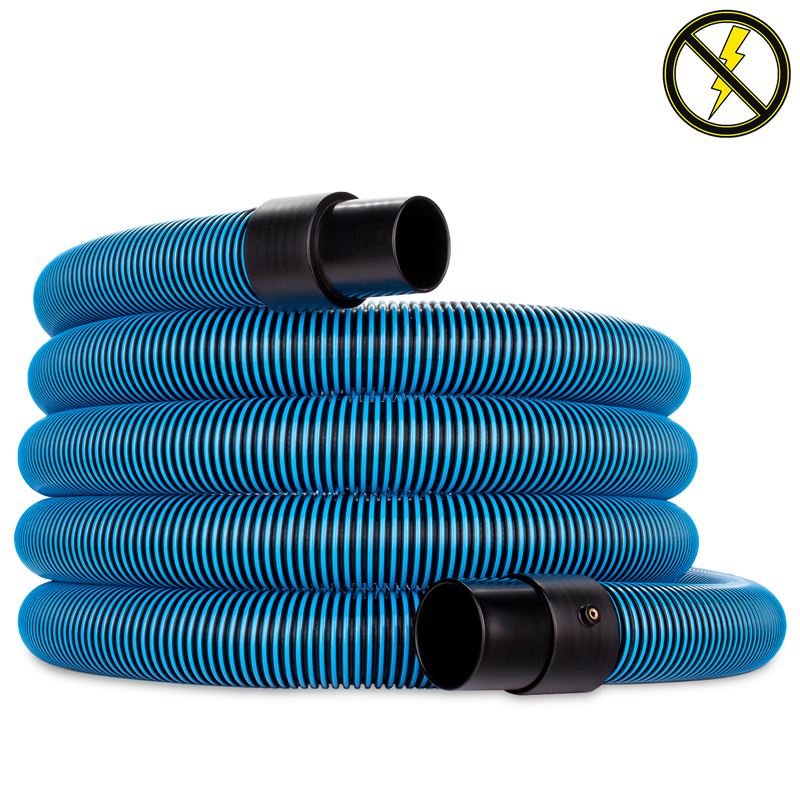 | 40mm/40mm | 5 meter | Standard (AS) | Yes |  |  |  |
* The Blue-Industrial hoses have a larger inner diameter (40mm) compared to the standard 38mm hose. As a result, the 5-meter long Blue-Industrial hoses offer nearly the same suction power and airflow as the shorter 2.5-meter standard 38mm hose.
50mm hoses
50mm hoses are primarily designed for dust extraction from larger stationary machines, such as a thickness planer and a CNC machine. With an adapter, 50mm hoses can often be used with smaller stationary machines as well. However, these larger hoses are generally not suitable for handheld tools, as they have wide external ridges that can catch on the edge of the worktable.
Turn the screen horizontally for a wider view.
| 50mm hoses | Inner diameters | Length | Nozzle | Antistatic | Flexibility | Airflow |
|---|---|---|---|---|---|---|
Superflex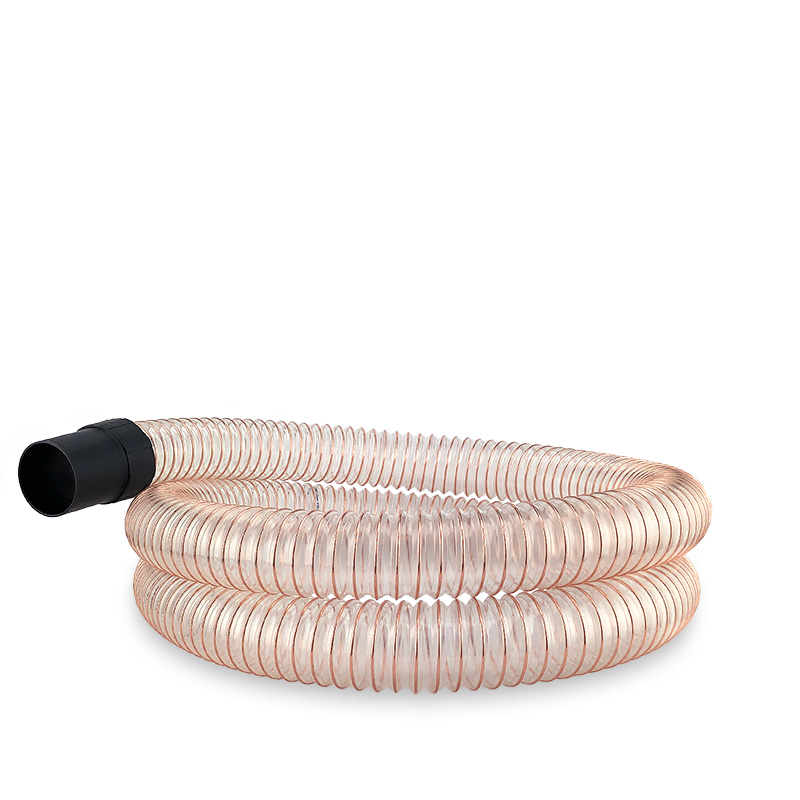 | 50mm/50mm | 2,5 meter | Standard | No |  |  |
Superflex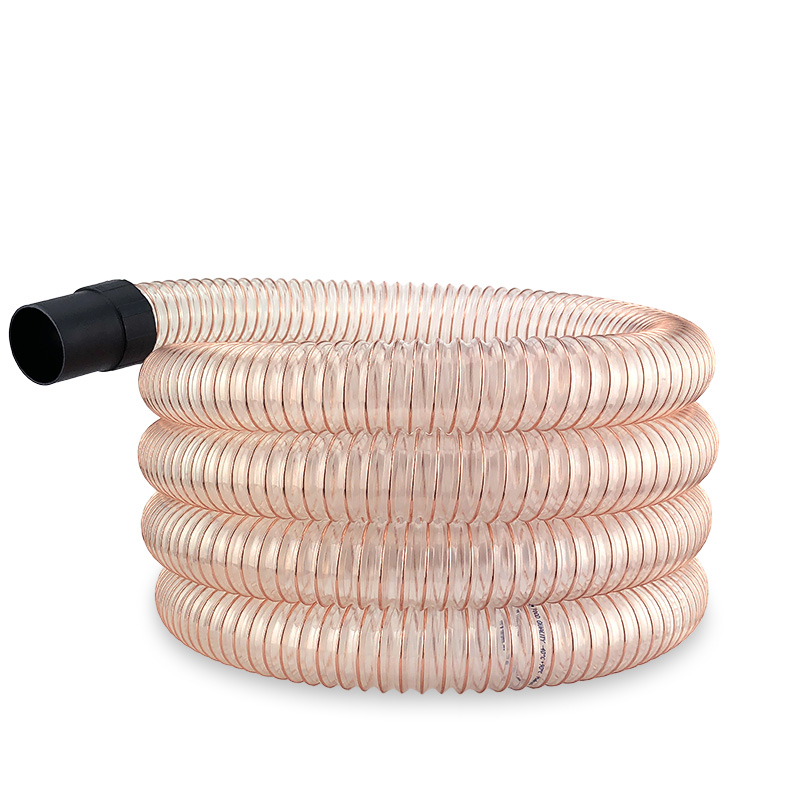 | 50mm/50mm | 5 meter | Standard | No |  |  |
Superflex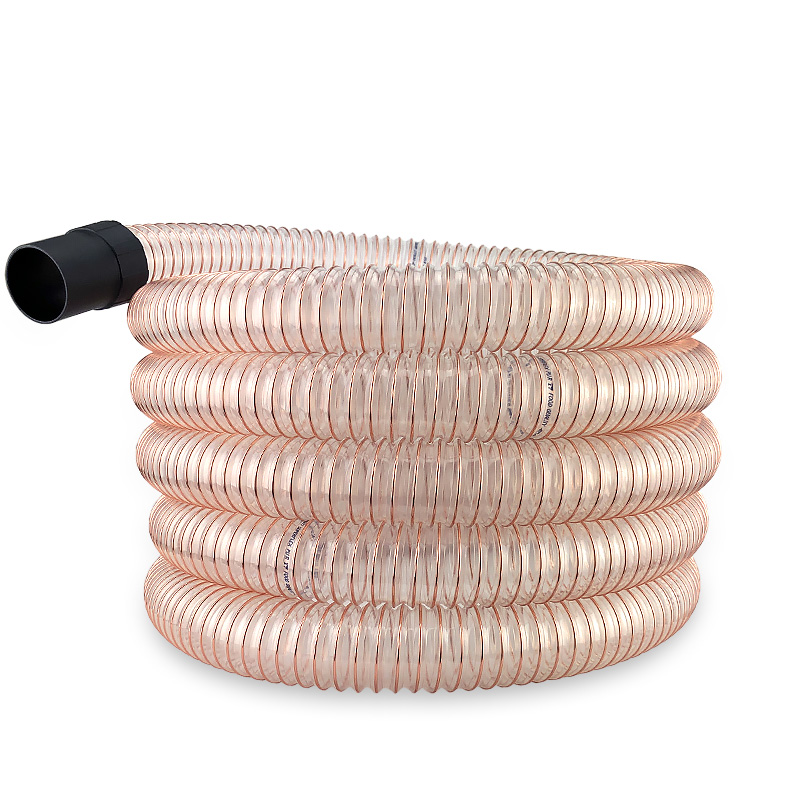 | 50mm/50mm | 7,5 meter | Standard | No |  |  |
Superflex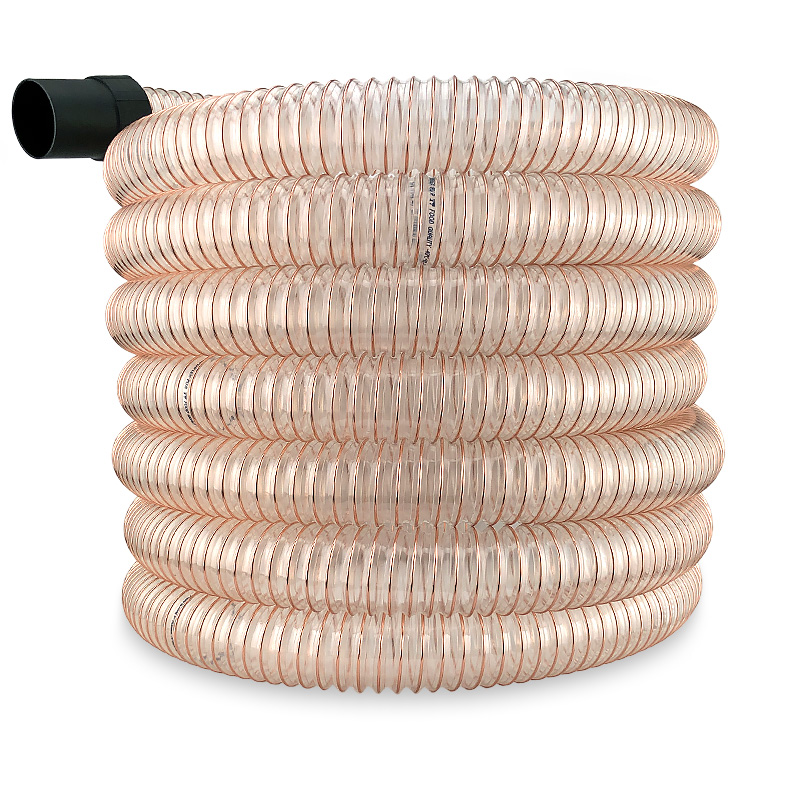 | 50mm/50mm | 10 meter | Standard | No |  |  |
Superflex (AS)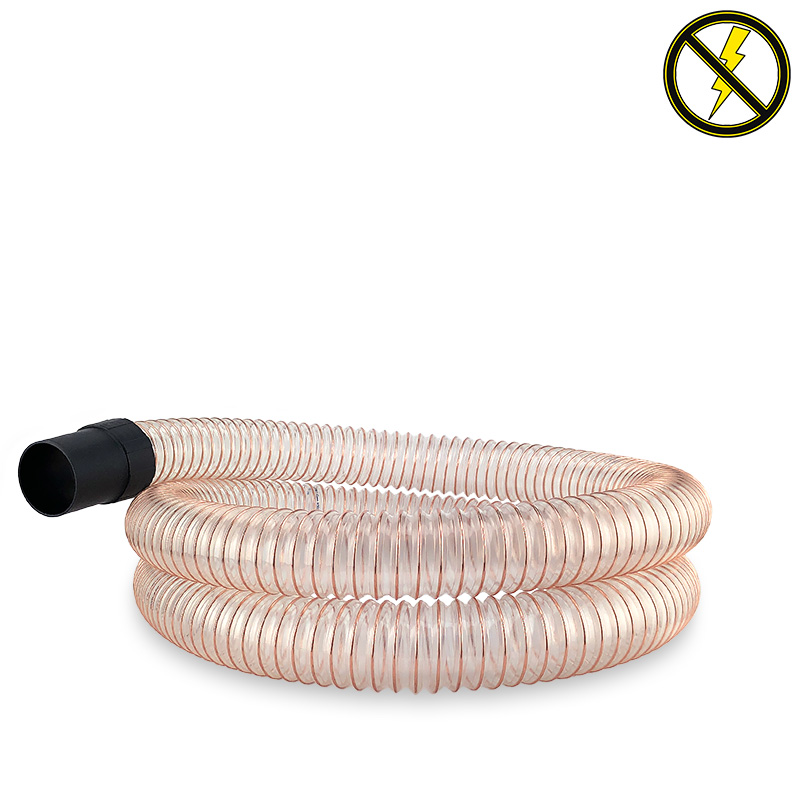 | 51mm/51mm | 2,5 meter | Standard (AS) | Yes |  |  |
Superflex (AS)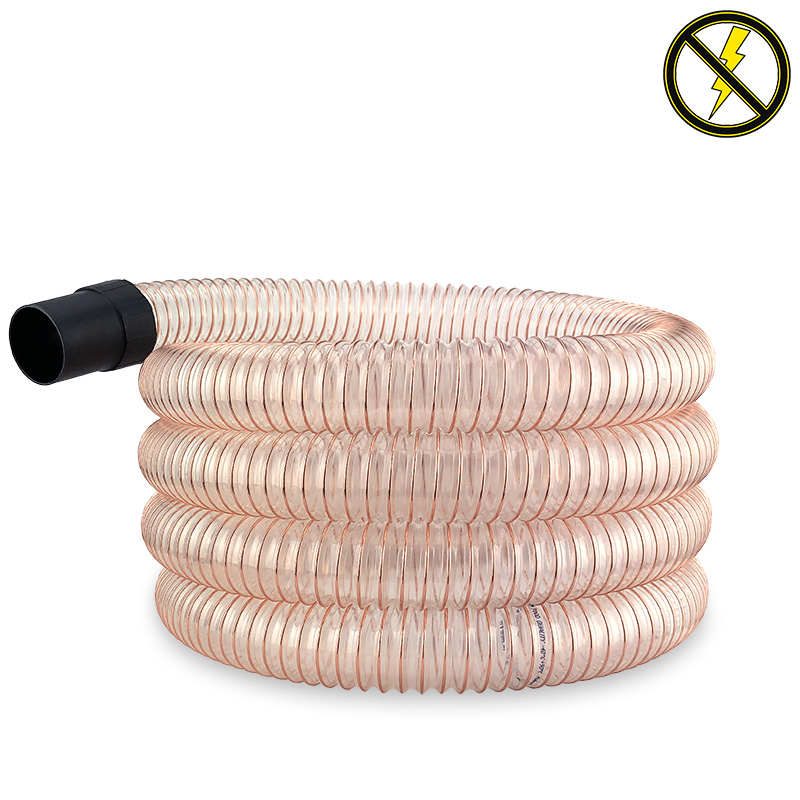 | 51mm/51mm | 5 meter | Standard (AS) | Yes |  |  |
Superflex (AS)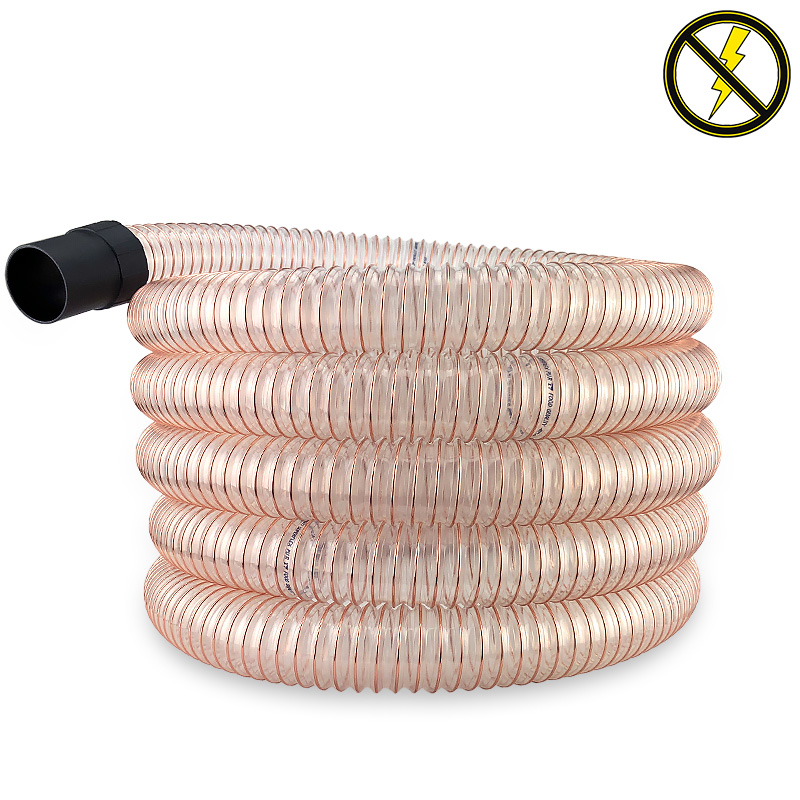 | 51mm/51mm | 7,5 meter | Standard (AS) | Yes |  |  |
Superflex (AS)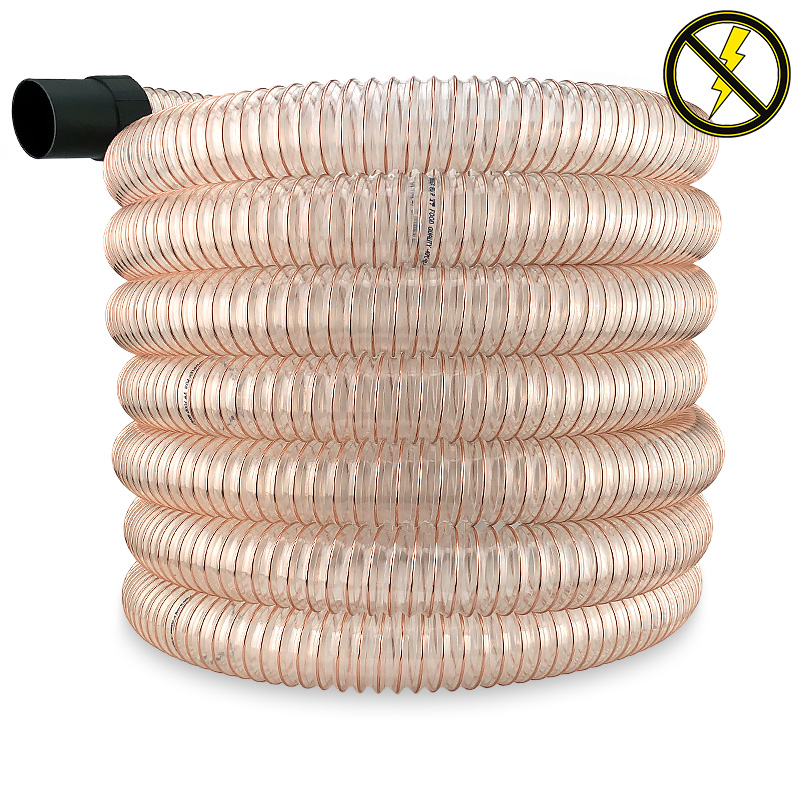 | 51mm/51mm | 10 meter | Standard (AS) | Yes |  |  |
